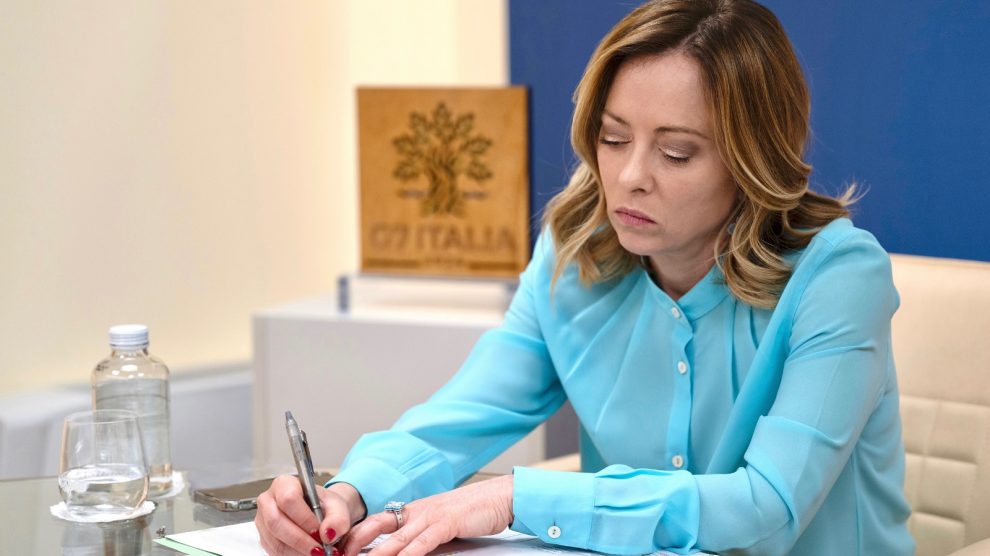G-7 foreign ministers to meet in Capri. The series of meetings – the first of two this year – will begin on April 17 and end on the 19. As noted by Foreign Minister Antonio Tajani, the aim is to strengthen the G-7’s role as the main forum for consultation among the major liberal democracies and as a factor for stability in the face of the major crises taking place globally.
- The agenda will, therefore, focus on the main issues at the centre of the international debate, starting with the situation in the Middle East – and the upheaval caused by Iran’s direct attack against Israel during the weekend.
Middle East, Middle East, Middle East. On Sunday, Italian Prime Minister Giorgia Meloni convened an urgent G-7 meeting to take stock of the situation. In the resulting joint declaration, read out by Rome, G-7 nations condemned the Iranian drone and missile attack and reiterated full support for Israel’s security. They also highlighted the need to avoid further confrontation in order to defuse tensions in the wider region and called for an end of hostilities in the Gaza Strip by means of a ceasefire and the release of hostages held there by Hamas.
- The ministerial meeting is set to focus on the ongoing humanitarian crisis and work towards the revitalization of a political process to reach a “two peoples, two States” solution – and, more generally, build a “credible political horizon for the region that guarantees peace and security,” in FM Tajani’s words.
- Ministers will also discuss the worrying situation in the Red Sea, where the safety of shipping routes is still threatened by the Houthis – and Mediterranean nations are bearing the economic brunt.
Don’t forget Ukraine… The response to Moscow’s war against Kyiv will remain at the heart of the G-7 agenda. The Italian presidency intends to confirm the forum’s support for Ukraine and its willingness to guarantee full military, political and financial support in the pursuit of a just and lasting peace. Talks will inevitably encompass the feasibility of using Russia’s frozen funds to aid Ukraine, which the White House supports.
- Several European Union countries, including France and Germany, still oppose the idea on the grounds of its legal, economic and political complexities.
- When PM Meloni travelled to Washington in March, President Joe Biden signalled his hopes of reaching a consensus in time for the G-7 leaders’ summit in June. On her part, she vowed to “push Europe as far as possible to support Kyiv in its various financial, military and reconstruction needs.”
… and what’s going on elsewhere. Talks this week will also include prospects of cooperation with African nations (especially in light of the nexus between development and migration) and the stability of the Indo-Pacific region. China and its economic ties with Western countries will inevitably come into focus – especially in the wake of China’s top trade official travelling across European capitals.
- While in Europe, Wang Wentao warned Brussels against its anti-dumping greentech probes and accused it of economic protectionism. On one of his stops – at the China-Italy Business Forum in Verona – he called on investors to “oppose unilateralism and protectionism and protect the global supply chain.”
- Rome is looking to restore economic ties in the context of the “global strategic partnership” that China and Italy defaulted on after PM Meloni took Italy out of the Belt and Road Initiative.
- FM Tajani described the event as the opening of a “new phase” and highlighted Rome’s openness to expand trade ties with Beijing – while expecting that it contribute to creating a level playing field.




